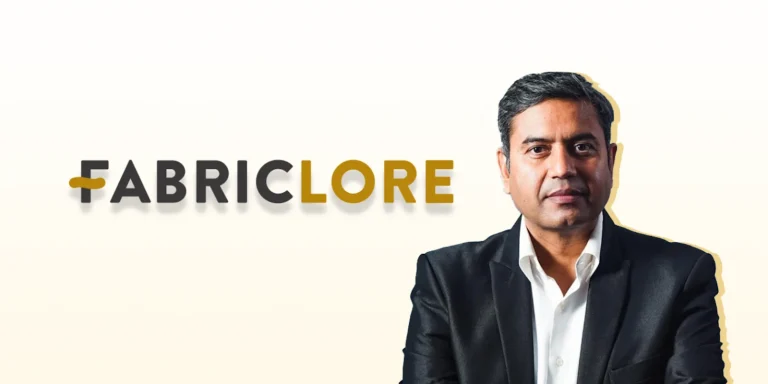Fabriclore, a B2B marketplace for fabrics that serves fashion enterprises using technology, has raised $1.6 million which it secured recently from PeerCapital and Regal Fabrics. This investment is a major step forward for the startup, enabling the firm to accelerate its growth across major economies such as India, the Middle East, Europe, and the USA.
Fabriclore Business Model
Fabriclore exists halfway between a marketplace and a retail store. Fabriclore selects and sources fabrics from artisans and manufacturers within India. They are concerned with conventional and new-age clothes, making an amalgamation between typical Indian textiles and new-age prints. Fabriclore also provides bespoke fabrics that include those that are unique and exclusive to specific locations. They are this flexible so they meet designers’ specific needs.
Their product portfolio comprises traditional Indian fabrics, Indian sarees, Indian dupattas, stoles, suits, accessories, and home furnishings. This means that, unlike most other fabric suppliers, Fabriclore is not a fabric wholesaler, so designers don’t have to have fabrics in stock themselves. With the help of Fabriclore, the designers get a chance to search thousands of distinct designs, textiles, and craftsmanship they wish at a single click. Fabriclore seeks to disrupt the fabric procurement process and bring it into the digital age through this ecosystem.
Image Source: Fabriclore
Streamlined Fabric Solutions
Fabriclore aptly solves one of the biggest problems that every designer faces i.e., the availability of fabrics. From thousands of designs and more than one hundred types of textiles, designers can now choose and select. Besides, there are 30 types of craft techniques offered by Fabriclore which can be customized depending on the current trends and changes within the industry.
Minimum Order Quantities
The platform offers customized fabric services, ranging from fabric search and selection to designing, dyeing, printing, and quality checks. Therefore, by providing all these services under a one-stop solution, Fabriclore can cater to not only D2C fashion brands but also multi-brand retailers. Importantly, it has flexible minimum order quantities (MoQs) to allow entry even for young and small labels as well as incumbent competitors.
Rapid B2B Fabric Supply Chain Market
In 2023, Fabriclore expanded its operations and entered India’s $20 billion fabric supply chain market. In merely one year of implementing this new strategy, the startup was able to attract more than 200 private labels that are mainly from India and the Middle East. The strength lies in its capability of providing a complete solution to fabric needs from sourcing to quality assurance.
Fabric Experience Studio
Fabriclore manages a 10,000 sq ft warehouse and has a quality check department in the company. It has also contracted other internationally accredited testing labs to issue certificates for certain tests that clients may request. Also, the company has implemented the Fabric Experience Studio in Jaipur, where designers might try the fabrics from 50 mills. The company is looking forward to opening more such experienced studios in tier-A cities in India and the UAE.
Conclusion
With this new round of funding, Fabriclore is ready to refine its technology, optimize customer satisfaction, and expand its operations internationally. With the ever-changing world of fashion, Fabriclore continues its mission to disrupt the fabric procurement process and enrich designers with options.

Note: You can reach us at support@scoopearth.com with any further queries.
Linkedin Page : https://www.linkedin.com/company/scoopearth-com/













